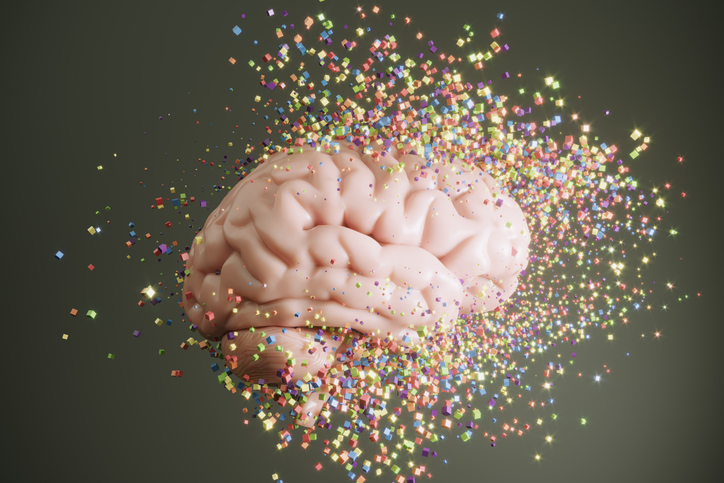
Here are the top stories covered by DocWire News this week in the Homepage section. In this week’s edition of the round-up: adults with a family history of Alzheimer’s disease have compromised cognition levels, concussion patients have a greater risk of losing their jobs, researchers show how the brain reacts to boredom, and CPAP therapy can improve depression symptoms in patients with cardiovascular disease.
A team of researchers developed an internet-based paired associates learning (PAL) task that revealed adults with a family history (FH) of Alzheimer’s disease perform poorly on learning assessments compared to people without a family history of Alzheimer’s. This learning impairment appears to be compounded in those with diabetes or a genetic flaw in the apolipoprotein E (APOE) gene. The findings was published in eLIFE. In this study, researchers tested 59,571 individuals between the ages of 18-85 to who participated in PAL assessment, called MindCrowd. After consenting to the study and answering demographic questions regarding age, sex, education, primary language, and country of residence, the participants were prompted to complete 12 word-pairs, one word-pair at a time. According to the results of the study, FH was associated with lower PAL performance in both males and females under the age of 65. The study’s lead researcher said that “collectively, this study supports recommendations underscoring the importance of living a healthy lifestyle, properly treating disease states such as diabetes, and building cognitive reserve through education to attenuate age- and AD-risk-related cognitive declines.”
People who suffer mild traumatic brain injuries (mTBI) incur the risk of losing their jobs due to persistent post-concussive symptoms, and this is especially true for people in their 30’s, according to a study published in BMJ Open. In a longitudinal nationwide register-based cohort study with five years of follow-up, the researchers assessed 19,732 Danish hospital patients between the ages of 18 and 60 years old diagnosed with mTBI. For almost every patient, one control was matched based on age, gender, and location (n=18,640). Following analysis, the results showed that while single status patients’ jobs were more affected in the short-term with mTBI (OR 1.38, 95% CI 1.30 to 1.46), patients with mTBI with a partner were slightly more long-term affected (OR 1.64, 95% CI 1.48 to 1.81). The authors noted a that a “clear inverse educational gradient was observed, where both in the short-run and long-run (OR 1.51, 95% CI 1.31 to 1.74) (OR 2.15, 95% CI 1.78 to 2.59) higher educated patients with mTBI were most affected on their ability to work.”
A team of researchers were able to show how the human brain reacts to being bored, and as a result can potentially help people cope with boredom. Their findings were published in the journal Psychophysiology. To conduct this study, researchers enlisted 54 young adults who completed trait boredom scales, an electroencephalogram (EEG) at baseline, and a boring task. The survey comprised a series of questions about boredom and gauged how each participant reacted to it. the researchers found no discernible difference between people reacted with more brain activity when juxtaposed to right brain activity. However, patients who answered the survey questions saying that they’re more prone to experience boredom in their daily life had significantly more right frontal brain activity as they got more bored performing the activity. “We found that the people who are good at coping with boredom in everyday life, based on the surveys, shifted more toward the left,” said Sammy Perone, Washington State University assistant professor in the Department of Human Development in a press release about the study. “Those that don’t cope as well in everyday life shifted more right.”
The use of continuous positive airway pressure (CPAP) can significantly improve symptoms of depression in patients with co-existing obstructive sleep apnea (OSA) and cardiovascular disease (CVD), according to the findings of a study published in The Lancet. Researchers of this study conducted a secondary analysis of over 2,400 patients with moderate-to- severe OSA from the Sleep Apnea Cardiovascular Endpoints (SAVE) cohort, which was an international, multi-center, randomized, open, blinded outcome assessed control trial that evaluated the efficacy of CPAP for OSA in the secondary prevention of CVD. According to the study findings, the use of CPAP therapy was linked with reduced odds of depression cases when juxtaposed to usual care in the SAVE trial and the treatment efficacy was higher in those with pre-existing depression symptoms. The authors wrote that “our systematic review and meta-analysis confirmed the efficacy of CPAP in reducing depression but not anxiety symptoms. The overall neutral effect of CPAP treatment on anxiety symptoms may be due to a slight positive, albeit non-significant effect of sham-CPAP as compared to therapeutic CPAP in several included trials.”







 © 2025 Mashup Media, LLC, a Formedics Property. All Rights Reserved.
© 2025 Mashup Media, LLC, a Formedics Property. All Rights Reserved.